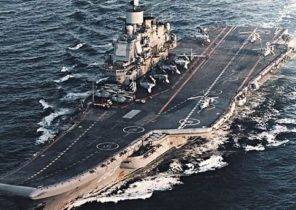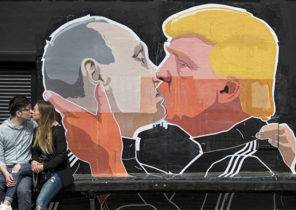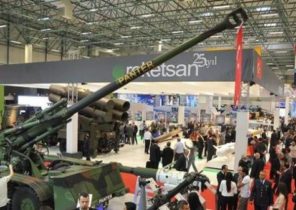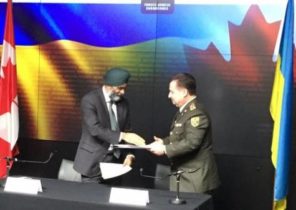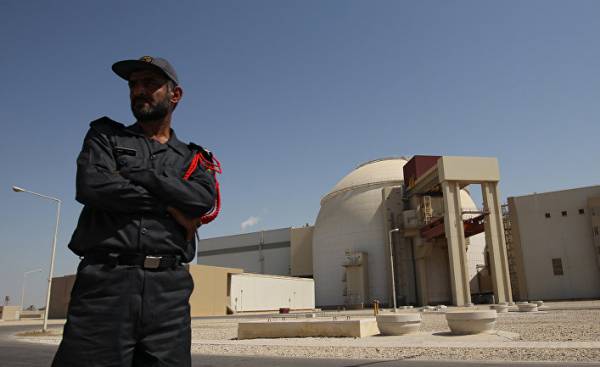
After the signing of the nuclear agreement between Iran and the major powers in July 2015, experts have warned about the possibility of a nuclear war in the region, and so covered with all sorts of conflicts. It was about the war of nuclear reactors between the leading regional powers — Iran, Turkey and Saudi Arabia.
In this report, we would like to highlight nuclear energy sector in the middle East, the industry in which the leader is Russia, being the largest supplier of nuclear reactors worldwide and through company-a giant in the field — Rosatom.
The beginning of Russian nuclear invasion in the middle East began in 2010, when the partners of the “Russian bear” was provided by the wide range of benefits and privileges. In terms of economic growth and increase in population such concessions were made in the field of nuclear energy.
In this regard, the question arises: can the States to ensure the safety of the reactor operation and control over them?
The reason for these fears goes back to the past, namely by the explosion of a nuclear reactor at Chernobyl in April 1986. The consequences of this explosion in terms of destruction and radioactive contamination for decades had a negative impact on people and the environment.
The safety issues related to reactors, especially relevant in the case of natural disasters and terrorist threats: the Iranian reactor in Bushehr is located on an area of seismic activity, and, among other things, they are in a state that is in a volatile region, vulnerable to political shocks.
As for questions about the processing of nuclear waste and the possible use of nuclear reactors for military purposes, then, apparently, they are of great importance, especially for the allies — the USA and Israel.
Nuclear cooperation deals with commercial ambitions
In 2009, when President of Russia was Dmitry Medvedev (2008-2012) the management has adopted a new strategy of nuclear power development, aimed at strengthening production and export capacity of the country.
To ensure the success of this strategy, Russia has decided to return to the middle East market to sign the largest number of transactions for the construction of nuclear reactors in the region.
In the long term, the Russian side hoped to achieve the following objectives: to increase the number of trade deals with the Russian company, to stimulate research and development in the nuclear field, strengthening energy ties between Moscow and its partners in the middle East, develop trade contacts in the long term and expand them by including other sectors, particularly the military, food and textile.
For countries suffering from regular outages, where the internal demand is very high, the Russian proposal, though costly, but acceptable. This decision will save the headache of the leaders in the region who are faced with the problem of choosing between the diversification of energy sources, conservation of existing natural resources and the need to protect the environment.
Due to the weakness or lack of experience in the nuclear industry, heads of major countries of the Middle East have no choice but to cooperate with Russia, especially considering the fact that Western States are concerned only with how to ensure the superiority of Israel over its neighbors in all fields.
Russia has succeeded in advancing its nuclear product not only because of the shortage of energy sources or lack of experience in the development of nuclear energy in the middle East countries. The fact that Russia, with its commercial proposal relieves the partners from having to worry about issues related to security and control: it is the responsibility of the logistics and safety of the planned construction of nuclear power plants.
At the same time, it should be noted that Moscow’s proposal takes into account the concerns of the major powers regarding the fact that the development and spread of nuclear power in a very contradictory region may encourage countries to use energy sources other than peaceful and for military purposes. Western countries have often accused Russia of financial support from Iran with the construction of a nuclear facility in Bushehr, and in the transfer to Iran of nuclear technology, which in turn, can facilitate the production of the regime of “velayat-e faqih” of nuclear weapons.
Thus, the government of Vladimir Putin adopted a new strategy known as BBO (Build — Own — Operate or “build — own — operate”) to prevent the transfer of nuclear technology to partners in the middle East. So, the Russian company carries out construction of the object, provides partial or total financing of the project, has the right to possession of the object, controls the overall operation of reactors, starting from the process of their design and finishing them after the expiry of the service life, and also controls the operations of processing and disposal of radioactive waste.
For its part, partner governments are obliged to buy a certain number of kilowatt-hours of electricity at a pre-agreed with Rosatom price. In addition, local authorities are responsible for the safety of nuclear power plants in case of occurrence of threats from abroad.
The most serious drawback of nuclear cooperation between Russia and countries of the Middle East is that at the time of the nuclear reactor contracts threaten to tie the future of these countries with the Russian experience in the field of energy. At the end of 2016, one of only Tehran had the right to own nuclear facility that largely ensured his independence in decision-making, while Turkey, Jordan and Egypt signed an agreement with Rosatom on the conditions of the TSB. Also expressed a desire to cooperate with Russia in the nuclear field, Algeria, Tunisia and Saudi Arabia.
Ayub Radwani — Moroccan researcher in the field of political geography.


